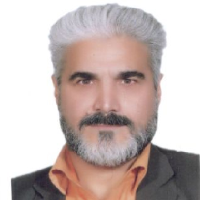A Calculation of Gender Inequality in Human Capital in Iran and Other Regions of the World
Author(s):
Abstract:
Human capital has economic and non- economic effects on development of countries around the world especially the developing countries. Despite the fact that non- market human capital effects originate from educating women, which improves the economic development, human capital gender inequality can reduce the speed of development. The main goal of this study is to determine the human capital inequality among men and women between 1960 and 2005 in different regions of the world in comparison with Iran. Regarding the non- market effect of human capital, the Gini coefficient is calculated through mathematical – statistical methods in order to illustrate the inequality between men and women. The results indicate that inequality trend has decreased through the years except in developed countries. However, the coefficient is continuously greater among women than men. In recent three decades, intensification of investment in order to decrease the illiteracy rate and expansion of universities, human capital inequality in Iran has remarkably decreased especially among women.
Keywords:
Language:
Persian
Published:
Journal of Higher Education Letter, Volume:5 Issue: 19, 2012
Page:
27
https://magiran.com/p1199312
سامانه نویسندگان
مقالات دیگری از این نویسنده (گان)
-
Analysis of the Impact of Economic Freedom Components on University Performance Components
*
Journal of Science & Technology Policy, -
Ecological Analysis of Interactions and International Performance of Universities
*, Maryam Hosseini
Journal of Management and Planning in Educational Systems, -
A framework for financial autonomy in universities applying Interpretive Structural Modeling (ISM) technique
*, Zahra Rashidi
Qurterly Journal of Research and Planing in Higher Education, -
A Strategic Approach to Financial Autonomy in Iranian Universities; a Hybrid model SWOT-TOPSIS
shadi Rouhani*, Hamid Rahimian, Abbas Abbaspour, Gholamreza Geraeinezhad, Samad Borzooian
Journal of Economic Strategy,




